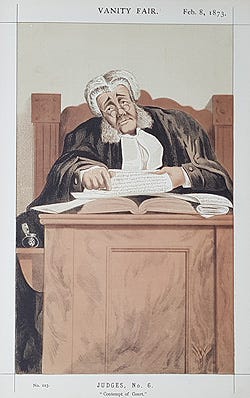The New Digest Goes on Circuit
A Debate With Chief Judge Pryor of the Court of Appeals for the Eleventh Circuit
The last month has been an eventful one for the editors of the New Digest. We have had the good fortune to find ourselves in dialogue with several senior jurists from both Canada and the United States. We have recounted these exchanges in earlier posts which we hope our readers have found illuminating.
To round out our brief foray into appellate advocacy, my post today provides a link to a recent written debate I had with Chief Judge William Pryor Jr. of the United States Court of Appeals for the Eleventh Circuit about the merits of originalism vs. Common good constitutionalism.
Judge Pryor is one of the leading originalists on the bench, and I hope our exchange will help to sharpen the lines of divergence that exist between natural lawyers and originalists.
The debate was hosted by the journal Judicature, which is published by the Bolch Judicial Institute at Duke Law School. The Institute provides a complimentary subscription to every Article III judge, federal magistrate judge, and state supreme court justice.
The format of the debate involved the editors of Judicature posing several questions to us about originalism and common good constitutionalism.
The full debate is available free here and can be downloaded as a PDF.
I won’t rehash the debate in this post. But if I had to pick one feature of the exchange that I think exemplifies the stark divide between originalism and common good constitutionalism, it is this: for originalists like Chief Judge Pryor, whether natural law principles have any bearing whatsoever in the course of legal practice, adjudication, the interpretation of statutes and constitutional text etc, is a matter of historical contingency and pure social fact.
This is not and never has been the classical natural law approach, which maintains basic precepts of natural law are binding of their own force, and just as much a promulgated part of a community’s law as positive law is. Indeed, it was not the approach of most generations of American jurists, including those of the founding era.
I will leave it to our readers to decide which position they find more jurisprudentially satisfying.




